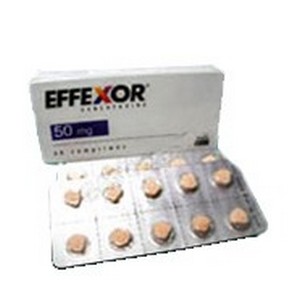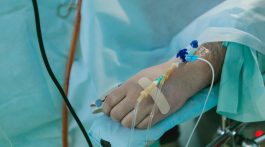Did you take Effexor during your pregnancy?
If you took the anti-depressant Effexor while you were pregnant and your baby has birth defects, the drug may be to blame. Effexor is the brand name of the drug venlafaxine, an anti-depressant in the class of Serotonin-Norepinephrine Reuptake Inhibitors, or SNRIs. It has been prescribed to patients for major depression, panic disorder, premenstrual dysphoric disorder (PMDD), obsessive-compulsive disorder, and general anxiety disorder. It has been prescribed to pregnant women to help control anxiety levels during pregnancy. Unfortunately, it has been shown to cause birth defects in children whose mothers took the drug while pregnant, especially during the first trimester.
Birth Defects Associated with Effexor
SNRIs, like Effexor, are thought to work by preventing receptors in the brain from absorbing serotonin that has been released, alleviating negative feelings. SSRIs, another class of anti-depressants, work generally the same way. One major difference is the fact that SNRIs also prevent the re-absorption of norepinephrine, in hopes to regulate the stress level of the patient. Some side effects, like nausea, extreme sleepiness, and sexual side effects, have been experienced by patients on both SSRI medications and SNRI medications. There have also been concerns raised about the overall effectiveness of anti-depressants, including Effexor.
Effexor has been singled out as a possible cause of multiple serious birth defects, and in October of 2004, the FDA added a “black box” warning to the label, which is the strongest warning available to a prescription drug medication. There has been no recall of the medication. Some mothers have reported the following birth defects and side effects believe to be associated with taking the drug Effexor:
- Premature birth—increased risk of premature birth may be related to the anti-depressant drug in the mother’s system decreasing the amount of oxygen and nutrients to the developing baby
- Miscarriage—studies have shown that women taking an anti-depressant during the first trimester of pregnancy have a significantly higher risk of miscarriage than a woman that does not
- Withdrawal symptoms (in the baby)—a baby whose mother took the drug Effexor while pregnant may suffer from withdrawal symptoms such as breathing difficulties, low blood sugar, turning blue, jaundice, vomiting, floppiness, stiffness, abnormal crying, and tremors
- Clubbed foot—a condition where one or both feet turn inward at the ankle, can usually be treated non-surgically
- Cleft lip or palate—when tissue forming the child’s upper lip fails to properly fuse, the result is a cleft lip. A cleft palate has to do with the bones in the roof of the child’s mouth not properly joining in development. Usually surgery is required to fix either condition.
- Delayed Development—a study published in 2010 shows that on average, women who were taking anti-depressants during pregnancy have a higher likelihood of having children who, on average, sit upright 16 days later and walk one month later than the norm.
- Persistent Pulmonary Hypertension (PPHN)—women who use anti-depressants past the 20th week of pregnancy are six times more likely to have a child who develops PPHN, according to an article published in 2006 in the New England Journal of Medicine.
- Gastroschisis—a condition where a portion of the infant’s intestines are outside of the body, usually correctable with surgery
- Enlarged Heart—sometimes anti-depressants taken by the mother during pregnancy may result in a child having an enlarged heart, which may be both too large and too weak to properly pump blood throughout the body.
- Septal Heart Defects—in this condition, the wall, called the septum, separating the right and left sides of the heart is malformed. An article published in 2009 shows that women who take anti-depressants during the first trimester are twice as likely to give birth to a child with this type of heart defect than a woman who did not take anti-depressants.
- Left Outflow Tract Heart Defects—in this case, the child’s aorta, the primary artery of the body, is narrow. This condition requires surgery to repair.
- Macrocephaly—a child with macrocephaly has a head that is abnormally large, generally two standard deviations above the average head circumference. This condition may cause infections, internal bleeding in the skull, cysts on the brain, as well as other defects.
- Craniosynostosis—a condition where the skull does not grow sufficiently to support the brain, and may lead to visual as well as cognitive impairments.
- Neural Tube Defects—a type of defect to the child’s spinal cord or brain that is so severe, many times the child survives only a few hours after birth. A Neural tube defect may cause the child to be missing significant portions of the skull and brain.
- Spina Bifida—not all cases of spina bifida may be related to the use of anti-depressants, but it has been shown to be a result of some women who have taken anti-depressants during pregnancy. Spina bifida is a condition that may require a lifetime of care.
Do you have a case?
If you took Effexor during your pregnancy, and you believe that the drug caused one of the above birth defects, or another condition not mentioned in your child, you may have a case. In order to make the best choices for your individual situation, please contact us immediately.




2 Comments